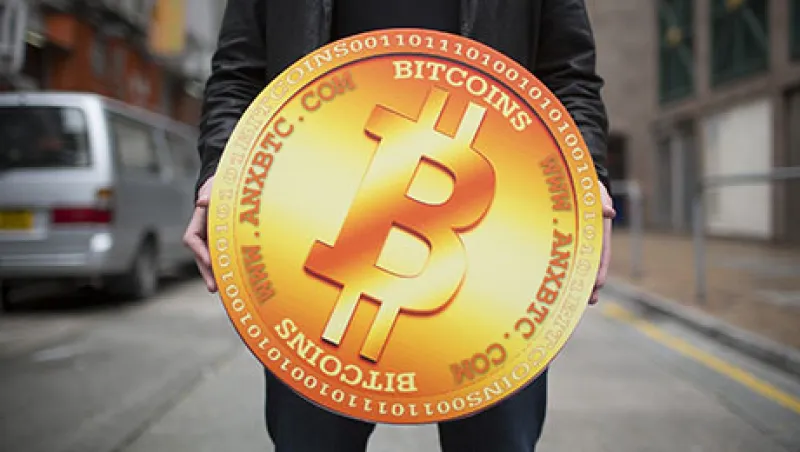For all the ink, both literal and virtual, that has been spilled over the controversies and misadventures of the digital currency Bitcoin, it remains a curiosity if not a complete enigma to most of the population. Headlines have raged about hacking, financial losses and bankruptcies affecting the Bitcoin ecosystem and allegedly illicit transactions taking place within it. In March, Newsweek magazine created a sideshow when it reported that it had identified Bitcoin’s secretive founder, Satoshi Nakamoto.
The impact of all that paled in comparison with the recent cyberattacks on major retailers to which tens of millions of credit card accounts were exposed and hundreds of millions of consumers could directly relate.
Chalk that up to the difference between a wild new frontier experiencing growing pains and established institutions being reminded yet again that they are where the money is and therefore a criminal target.
It was surely a coincidence that high-tech adversity struck both worlds concurrently. Both continue working to repair monetary and reputational damages months after the respective crises reared their heads. Yet, taken together, these events point to the future in ways that may not be so obvious through the day-to-day fog of cybersecurity threats.
Bitcoin, although just one of dozens of so-called cryptocurrencies at various stages of development, is a flashpoint for debates between supporters and skeptics. The former were characterized as “anonymous libertarian frontiersmen” by Patrick Young, head of DV Advisors — and he is pro-Bitcoin! In Exchange Invest, his newsletter chronicling money and market developments, Young has argued that Bitcoin “offers a solution to various issues” by enabling even micropayments in small fractions of a dollar with lower processing costs and less friction than in credit and debit card systems.
By contrast, economist and New York Times columnist Paul Krugman, viewing conventional money as perfectly functional, has dismissed Bitcoin as a “bubble” and an “antisocial network.” Warren Buffett said in a March 3 CNBC appearance that Bitcoin, which is five years old, won’t last another ten or 20 years and fails to meet the definition of a currency.
The believers are correct that Bitcoin has a contribution to make. The skeptics need not worry that Bitcoin is the ultimate incarnation of a crypto-currency (see also “Bitcoin Smackdown: Marc Andreessen vs. Paul Krugman”).
The libertarian streak notwithstanding, regulators will have their say. New York State financial services superintendent Benjamin Lawsky, for one, has vowed to impose oversight without stifling innovation.
The fact is that the concept has been at least a couple of decades in the making — and Buffett’s time frame may prove a reasonable estimate of how long it will take to truly mature.
Back in the 1990s, computer scientists observing or involved in the Internet’s evolution from a research-and-development utility into an e-commerce medium believed it would not be complete without e-currencies native to the Net and especially suitable for micropayments. One early prototype was Ecash, invented by American cryptologist David Chaum while he was running an Amsterdam start-up called DigiCash. Others came out with names like Beenz and Cybercoin. The latter was a product of Internet payments company CyberCash, co-founded by Stephen Crocker, chairman of the Internet Corporation for Assigned Names and Numbers, who in the 1960s worked on the Internet’s predecessor, ARPANET.
None of those currency brands survived the combination of the dot-com crash and competitive responses by the payment card industry and the likes of PayPal — but Bitcoin is their heir. Like Ecash, it was built on a foundation of sophisticated cryptography and adopted the terminology and imagery of physical money. In common with Bitcoin’s putative founder, Chaum was a fierce privacy advocate, and consumer anonymity was a hallmark of Ecash. However, whereas Chaum sought to integrate Ecash with conventional banking and money creation, such legitimacy is anathema to many Bitcoin libertarians.
Whether because of its economics, ease of use or supporters’ fanaticism, Bitcoin has gained more traction than did its forebears. Security holes have been exposed — not in the core technology but in the exchanges and wallets that are its interface with users. But other payment systems are hardly invulnerable and will have to raise their game also.
Paul Kocher, president of Cryptography Research, a San Francisco–based division of technology developer Rambus, predicts, “We will see a quantum shift in payments security toward a cryptographic construct.” In other words, the two worlds are converging. • •
Get more on bitcoin: “Bitcoin Exits Mt. Gox and Heads to Wall Street”






